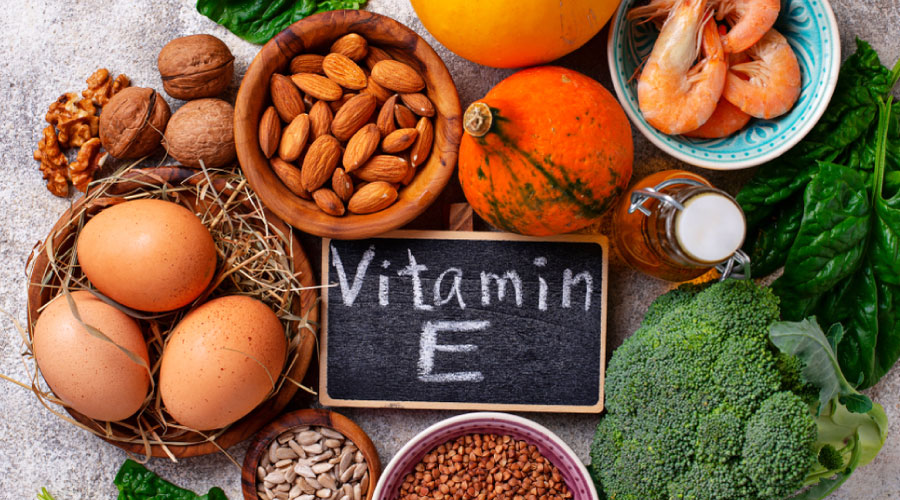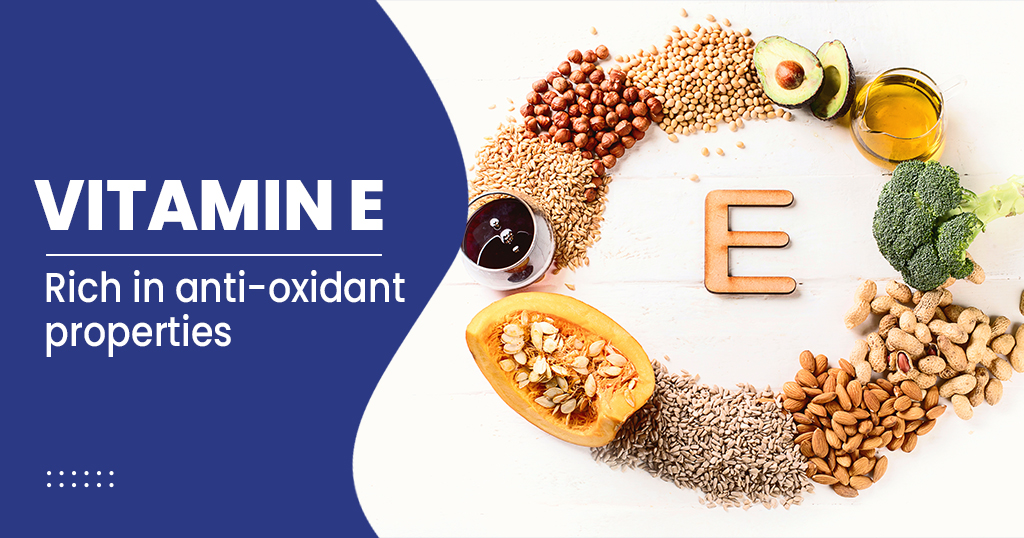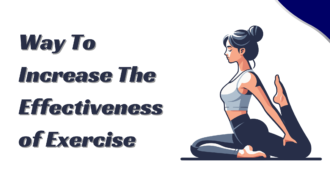Wellhealthorganic.Com: Vitamin-e-health-benefits-and-nutritional-sources
- 1 Benefits of Vitamin E
- 1.1 Regulates Oxidative Stress
- 1.2 Manages Diabetes
- 1.3 Keeps Your Skin In Good shape
- 1.4 Keeps The Symptoms Of Osteoarthritis Under Control
- 1.5 Scars can be healed
- 2 How To Tell if You’re Low on Vitamin E?
- 2.1 What Are Some Good Vitamin E Food Options?
- 2.2 Can You Have Too Much Vitamin E? What Repercussions Does That Have?
- 2.3 What Happens If A Person Doesn’t Get Enough Vitamin E?
- 3 The Bottom Line
Like other vitamins, vitamin E consists of a family of chemically identical compounds that perform similar bodily functions. Vitamin E molecules can be further broken down into their parts, the tocotrienols and tocopherols. Vitamin E, a lipid-soluble antioxidant crucial to cell health, is primarily sourced from the foods you eat. Because of its antioxidant characteristics, it plays various essential roles in the body.
Aging, cancer, cataracts, and arthritis are some diseases and ailments that may be linked to oxidation. Vitamin E can remedy these issues. It also prevents Platelet hyperaggregation, which can contribute to atherosclerosis. Additionally, it reduces the production of platelet-clumping prostaglandins like thromboxane.
Also Read – Wellhealthorganic.Com/Know-The-Causes-Of-White-Hair-And-Easy-Ways-To-Prevent-It-Naturally
Read on the blog about Wellhealthorganic.Com:Vitamin-e-health-benefits-and-nutritional-sources to know more!
Benefits of Vitamin E
Regulates Oxidative Stress
Signs of oxidative stress show up when your body doesn’t have enough free radicals or antioxidants. Vitamin E is an antioxidant that fights the damage caused by free radicals. This keeps cells from getting hurt. In this way, it helps keep your body from getting too inflamed.
Manages Diabetes
When reactive stress is high, your body is more likely to get diabetes. One of the perks of eating foods with vitamin E is that it delays the start of this condition.
Keeps Your Skin In Good shape
As an antioxidant, it also keeps your skin from getting damaged by the outside world. One famous way to use vitamin E is as a part of cosmetics. In topical creams, it has photoreceptive qualities that can help wounds on the skin heal.
Keeps The Symptoms Of Osteoarthritis Under Control
Osteoarthritis hurts and stiffens the joints. By lowering reactive stress, vitamin E helps keep osteoarthritis symptoms at bay.
Scars can be healed
Scars result from damaged tissues and skin cells and are not aesthetically pleasing. These scars often take a longer time to heal. Vitamin E’s therapeutic capabilities allow it to mend damaged cells. Additionally, it is risk-free for use on scrapes and burns. Scars eventually lighten as the skin takes up these nutrients.
Also Read – Wellhealthorganic.Com: Red Chilli You Should Know About Red Chilli, Uses, Benefits & Side-Effects
How To Tell if You’re Low on Vitamin E?
If you’re short on vitamin E, watch out for these symptoms:
- Imperfect vision
- Coordination issues
- Reduced resistance
- Faint muscles
- Numbness, tingling, or peripheral neuropathy.
Please take note that the following conditions put people at a higher risk of vitamin E deficiency:
- Crohn’s illness
- The affliction of CF
- Pancreatitis, Severe
- Cholestasis Ataxia
If you experience any of these signs, see a doctor right away. Your doctor will prescribe a blood test.
What Are Some Good Vitamin E Food Options?
Plant oils, margarine, and some fruits and vegetables like peaches and asparagus are excellent dietary sources of vitamin E. The typical adult consumes close to the recommended amount of vitamin E daily, 15 TE. Vitamin E supplements often take the form of alpha-tocopherol succinate or alpha-tocopherol acetate.
Mixed tocopherols and -tocopherol are also accessible, as is -tocopherol phosphate, which is nutritionally equivalent to succinate and acetate. In addition, dl-alpha-tocopherol supplements derived from natural sources will have a higher concentration of the bioavailable form of vitamin E than manufactured vitamin E, which may be contaminated with ineffective forms of -tocopherol.
| Food Name | Weight | Vitamin E (mg) |
| Almond | 143 | 36 |
| Margarine | 232 | 31 |
| Sunflower Seed | 46 | 16 |
| Peanuts | 146 | 7 |
| Avocados | 230 | 6 |
| Apricots | 130 | 5 |
| Rice bran | 118 | 5 |
| Pistachio nuts | 123 | 3 |
| Blueberries | 244 | 3 |
Can You Have Too Much Vitamin E? What Repercussions Does That Have?
It’s crucial to get enough vitamin E every day. However, taking too much of this vitamin is associated with serious health risks.
Check out these vitamin E overdose symptoms:
- Causes a higher chance of suffering a hemorrhagic stroke
- Lack of Muscle Strength
- Fatigue
- Nausea
- It causes a higher chance of bleeding
- Diarrhea
- Headache
- Causes more skin rashes.
Also read – Wellhealthorganic.Com: Weight Loss In Monsoon These 5 Monsoon Fruits Can Help You Lose Weight
What Happens If A Person Doesn’t Get Enough Vitamin E?
Adults don’t often have too little vitamin E unless they have health problems that typically make it hard to handle fats. Any problem that makes it hard for the body to digest and absorb fats normally can make it harder for the body to take vitamin E. A deficiency can take months or even years to show up as medical signs like weak red blood cells and nerve problems. Most of the time, the medical issue is treated long before the signs of vitamin E deficiency appear. However, children with cystic fibrosis are a particular worry because their pancreas doesn’t make enough digestive enzymes. After all, they have this disease.
The Bottom Line
Wellhealthorganic.Com: Vitamin-e-health-benefits-and-nutritional-sources, as a fat-soluble vitamin, is crucial to good health. It’s vital for maintaining a healthy immune system and proper cellular signalling because it’s a potent antioxidant.
Vitamin E can be found in various foods and is available in supplement form. People with diabetic nephropathy and nonalcoholic fatty liver disease (NAFLD) are among those who may benefit from taking vitamin E supplements, according to some research. However, vitamin E supplements are often unnecessary because most people already get enough vitamin E from their diet. In addition, vitamin E pills in excessive amounts might have undesirable effects and interact negatively with some pharmaceuticals.
FAQs
Where can I find vitamin E-rich foods?
Plant oils, margarine, and some fruits and vegetables like peaches and asparagus are excellent dietary sources of vitamin E.
Is vitamin E a nutrient that dissolves in fat?
Vitamin E, as a fat-soluble vitamin, is crucial to good health. It’s vital for maintaining a healthy immune system and proper cellular signaling because it’s a potent antioxidant. Vitamin E can be found in various foods and is available in supplement form.
Should I take Vitamin E capsules?
Vitamin E found in food sources is preferable to synthetic supplements. Eat a serving of nuts daily. Unless you’re experiencing symptoms of deficiency, dietary supplements are unnecessary.
Why would you want to use vitamin E oil?
It can be applied topically to treat dry skin, fine lines, stretch marks, scars, and to control oil production by the skin’s sebaceous glands.


















